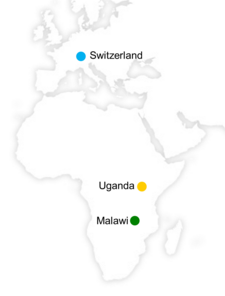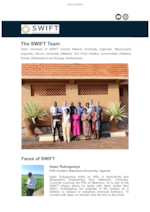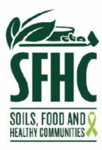Department Sanitation, Water and Solid Waste for Development
SWIFT-Sustainable Waste-based Insect Farming Technologies in Uganda and Malawi
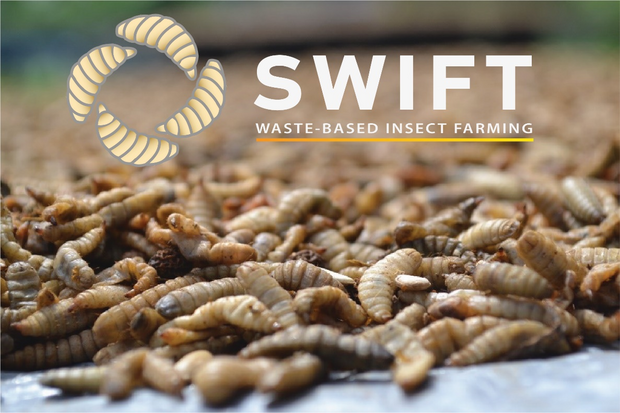
NEW TOOL ALERT!
Are you a practitioner, farmer or researcher interested in knowing how well black soldier fly larvae develop on different substrates? Check out the BSFL substrate navigator.
Sign Up For the Newsletter
Feel free to reply to this email if you have any questions, suggestions or specific topics you’d like us to cover in future editions.
Your feedback is important to us. If you no longer wish to subscribe, please write an email to daniela.peguero@cluttereawag.ch.
SWIFT is an innovative and transdisciplinary R&D project funded by the Swiss National Science Foundation and the Swiss Agency for Development and Cooperation (SDC) under the Solution Oriented Research for Development Programme (SOR4D).
In partnership with Mzuzu University, Makere University, Bioconvision and Soil, Food and Healthy Communities (SFHC), our project aims to offer a sustainable waste management solution using insect-based farming in Malawi and Uganda. The overall project objective is to facilitate the adoption of waste-based insect farming using black soldier fly larvae with smallholder farms and small and medium enterprises.
Waste-based BSF insect farming can offer a sustainable solution by transforming biowaste into high-quality insect protein and fat for animal feed. Additionally, the residual byproduct can serve as a fertilizer. The efficient conversion of waste into valuable resources not only reduces biowaste that would otherwise be landfilled but also contributes to the availability of nutritious food, while also playing crucial a role in job and livelihood creation.
The project is divided into four different work packages, each with its own specific focus. For additional details, please refer to the individual work packages below:
WP1: Waste and Suitability

WP1 focuses on enhancing our comprehension of the suitability of biowaste materials for insect farming.
Our goal is to provide valuable insights to development partners and practitioners involved in this field. The research will involve an assessment of waste practices, quantities and qualities in selected locations (Jinja, Uganda; Mzuzu, Malawi). This assessment will utilize various methods including field sampling, observation, interviews, surveys and multi-criteria analysis to evaluate the suitability of waste materials.
WP2: Operations
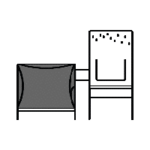
WP2 is dedicated to collaboratively developing insect farming design, equipment and operational strategies. The aim is to create adaptive plans and implement pilot projects in each country, which will serve as demonstration and training sites.
WP3: Products and Markets

WP 3 primarily centers on insect products and market dynamics, with a particular emphasis on strategies for market entry as well as financial feasibility of insect farming operations. This involves conducting comprehensive market surveys, assessing consumer perception, providing support to farmers, and constructing cost-revenue models using primary data gathered from pilots units.
WP4: Enabling Environment
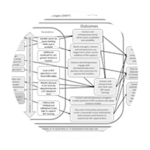
WP4 primary objective is to examine the influence of communities and institutions on insect farming. This will involve studying the institutional, legislative and economic conditions that either facilitate or hinder insect farming. The assessment will also include an evaluation of the pilot unit’s CO2 footprint to explore the potential of using of carbon trading as financing mechanism. Additionally, we will analyze legislative and institutional challenges and opportunities using research methods such as interviews, focus group discussions and multi-stakeholder dialogues.

